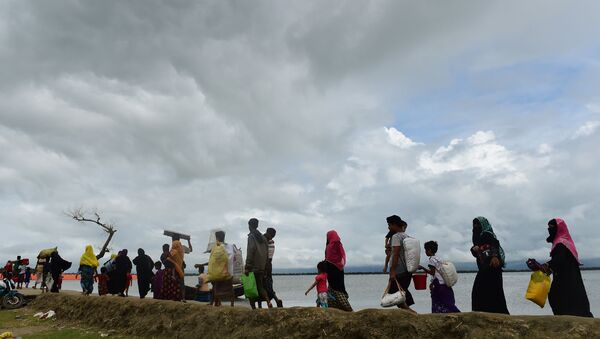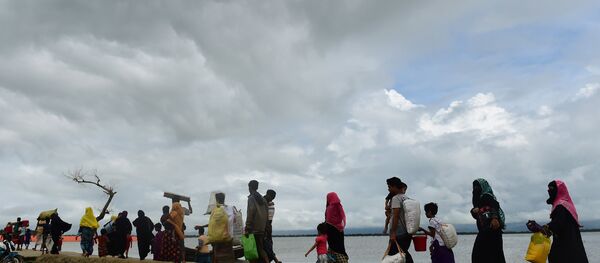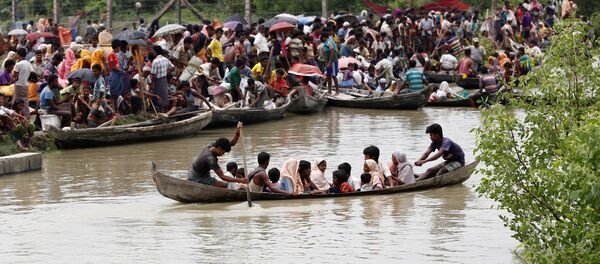The Rohingyas are a Muslim minority group living in mostly-Buddhist Myanmar, also known as Burma, which borders Bangladesh and Thailand. Myanmar has a long history of brutally discriminating against Rohingya people.
On Monday, Bangladesh's Prime Minister Sheikh Hasina announced that Bangladesh would not refuse the 700,000 Rohingya refugees hospitality.
"We have the ability to feed 160 million people of Bangladesh and we have enough food security to feed the 700,000 refugees," the Prime Minister said after visiting the Kutupalong Refugee Camp in Ukhiya, Cox's Bazar.
Distributing aid while visiting various refugee camps, Sheikh Hasina also said, "We have let the Rohingya in on humanitarian grounds and I ask the people of this country to help ease their suffering in whatever way they can."
The prime minister added: "I ask the international community to put pressure on the Myanmar government to take back their nationals."
"Bangladesh wants to maintain peace and good relations with its neighboring countries, but it cannot accept unjust acts of the Myanmar government. We will do all we can to ease the suffering of the Rohingya refugees."
The United Nations High Commissioner for Human Rights Zeid Ra'ad Al Hussein also expressed his intense disapproval of the Myanmar government's actions against Rohingya people.
"Because Myanmar has refused access to human rights investigators the current situation cannot yet be fully assessed. But the situation seems a textbook example of ethnic cleansing," Hussein said in a statement Monday.
Ever since a Rohingya militant group attacked military outposts on August 25, which killed about a dozen people, the government military has responded pugnaciously with an operation that is "clearly disproportionate and without regard for basic principles of international law," according to Hussein.
In addition, Aung San Suu Kyi, who is widely recognized as the de facto leader of Myanmar and the Nobel Peace Prize laureate in 1991 for her non-violent struggle for democracy and human rights, has been heavily criticized for not defending the Rohingya people.
Five women who won the Nobel Peace Prize wrote a letter to Aung San Suu Kyi that reads: "As a fellow Nobel Laureate, a worldwide icon for the universal freedom and human rights, and now State Counsellor and de-facto Prime Minister of Burma, you have a personal and moral responsibility to uphold and defend the rights of your citizens."
The letter goes on to add, "How many Rohingya have to die; how many Rohingya women will be raped, how many communities will be razed before you raise your voice in defense of those who have no voice? Your silence is not in line with the vision of ‘democracy' for your country that you outlined to us, and for which we all supported you over the years."
In an interview in March 2016, Aung San Suu Kyi was interviewing with BBC presenter Mishal Husain and was heard saying under her breath, "No one told me I was going to be interviewed by a Muslim," revealing her anti-Islamic attitudes.




